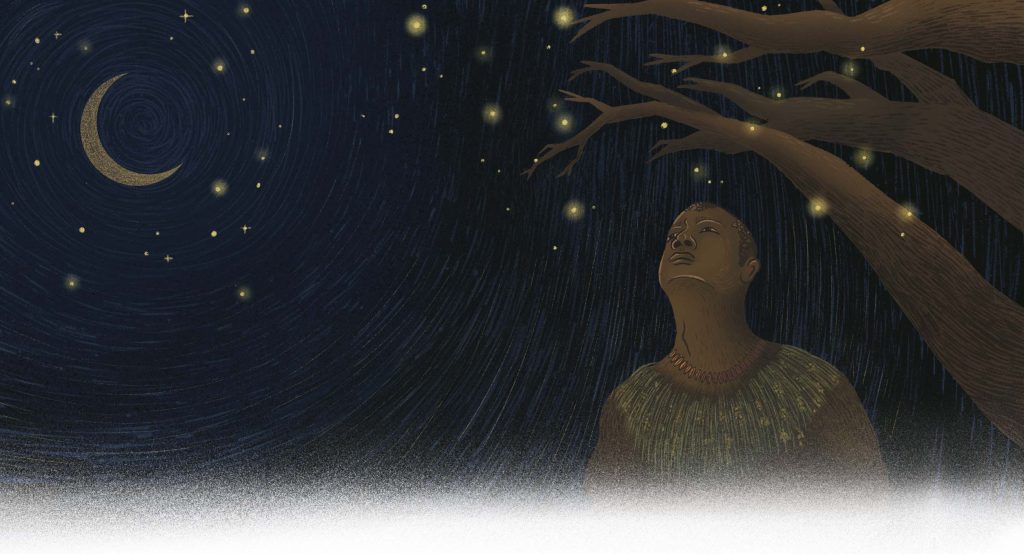We have often argued against locking Nature away from people. But we must recant. Nature needs to be locked up, for her own good. Nature is dangerous, and we need to protect her from herself.
Let us explain. Judging by our previous writing, you will have guessed that we are somewhat sceptical about the Half-Earth movement, which seeks to set aside half of the planet for Nature. Our doubts arise because it is not clear how these areas will be set aside or what levels of protection they will afford. It is not clear who will need to move, and who should restrict their livelihoods. It is not clear whose version and vision for Nature is getting the designated half. It is not at all clear that this will deal with the root of the problem that has driven the degradation and despoliation of Nature – namely economies governed by greed.
And one could argue that actually these are merely quibbles. We have a more fundamental point of agreement with Half-Earthers, namely a desire for less despoliation of Nature. Our disagreement is largely about means. In fact, we would all welcome many of the same general ends.
But that very agreement may, in fact, have been our most serious mistake. We are assuming that Nature can be trusted. That if you leave things to Nature, if you allow the wild to flourish, then that will be a good thing. And now it appears that our faith and optimism was hopelessly naïve.
Some philosophers argue that anyone who delights in seeing wild animals flourishing must be appalled by the death, destruction and sheer misery that is deliberately built into so many creatures’ reproduction strategies. Simply put, many species (so called ‘r-strategists’) deliberately have gazillions of children fully expecting most to die after short miserable lives. For example, Oscar Horta has estimated that the breeding population of cod in the Gulf of Maine creates over 6300 years of suffering in doomed codlings every breeding cycle.
For some, this suffering is unacceptable. We need to find ways to intervene, to separate predators from prey and to stop prey species from being so incredibly fecund. This will be quite far-reaching, because it requires setting up a new Nature Zoo, in which the wild is carefully segregated away from itself. Specifically, it would entail separating predators from prey, providing dietary alternatives for predators based on non-sentient species like plants, and mass sterilisation or gene therapy for r-strategists so that they produce far fewer young. And gene therapy could also be used to modify plants so that they are fit for consumption by carnivores.

Philosophers insist that we take this vision seriously. As Horta writes: “it would be strange not to think about ways in which we could act to improve the situation of animals in the wild once we are aware of the immense amount of suffering present in it.” We must admit that it is a stimulating vision which prompts a large number of reactions but we will restrict ourselves to two observations at this point.
First, it should be plainly obvious that allowing Nature to unleash herself on herself in this wanton fashion all over the planet is grossly irresponsible. The suffering and death of the wild are intolerable. Nature needs half? Poppycock! Until Atlantic cod, ridley turtles and others learn to control their frankly disgusting breeding impulse, they do not deserve anything. Evicting all life forms from the Gulfs of Maine to Mexico until they can treat each other kindly is a moral priority. Nature cannot be trusted to look after
herself humanely.
It’s worth pointing out that Nature has previous convictions in this respect. After all, r-strategies evolved from somewhere. And it is hardly necessary to remind readers that we are now entering, with the Anthropocene, the sixth mass extinction. This one’s on us, but the previous five were all Nature’s fault. At the end of the Permian (a bad hair era), she knocked off over 90 percent of species, and at the K-T boundary, all dinosaurs barring birds. Nature seems to revel in death and extinction.
It is purely logical therefore to insist that Nature only be given space when it has been properly segregated into different domains that permit more dignified and wholesome inter-species interaction which exclude predation, parasitism, infestation, competition, aggression, minor nibbling and any other form of harassment.
Second, we must also recognise its inevitability. This is coming down the pipe, folks. Just look at the speed made in scientific progress towards mapping and editing genes. It’s exponential. Indeed, given the accelerating progress being made in gene mapping and modification, we predict that the arrival of the means to establish new humane nature zoos will be achieved by Monday 4th of July 2024.
Nature, do not fear, we will nurture you back to life!






